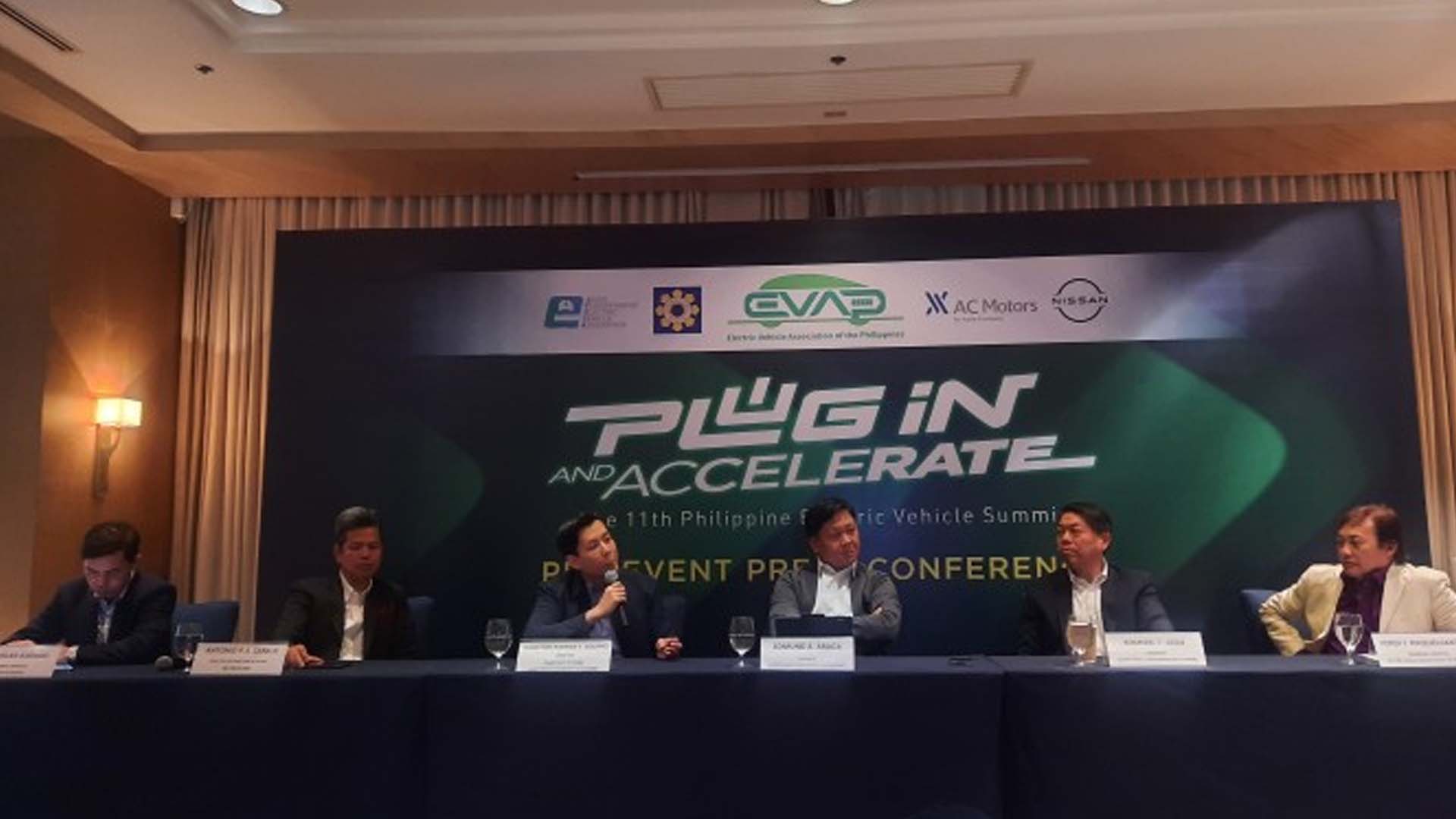An official of the Department of Energy (DOE) sees the Philippines will have 100,000 electric vehicle (e-vehicle) registrations by 2028, backed by government policies that will support the growth of e-vehicle industry in the country.
In a press conference of the Electric Vehicle Association of the Philippines (EVAP) in Taguig City Wednesday, DOE Energy Utilization Management Bureau Director Patrick Aquino said it is expected that majority of these e-vehicle registrations will come from motorcycles.
Citing the figures from the Land Transportation Office, Aquino said there are 9,666 registered e-vehicles last year, 8,100 of which are two- and three-wheelers.
“From the government perspective, we’re looking at more lively sector,” he said.
He added that with the Electric Vehicle Industry Development Act (EVIDA) now in place, the implementation of the Comprehensive Roadmap for the Electric Vehicle Industry (CREVI) as well as other programs, such as the Vehicles Fuel Economy Labeling Program (VFELP) and the Fuel Economy Performance Rating (FEPR), will help in accelerating the adoption of e-vehicles in the country.
“What you will be hearing moving forward from the government is our continued push to support the sector, the expansion of the import tariff suspension under the existing Executive Order (EO)… We are looking forward to having the inclusion of two- and three-wheelers,” Aquino said.
Last Jan. 13, President Ferdinand R. Marcos Jr. signed EO 12 scrapping tariffs on completely built-up e-vehicles for a period of five years.
Aquino underscored that the local industry has big potential in two- and three-wheeler types of e-vehicles based on the number of vehicle registration last year.
More than 8 million out of 13 million vehicles that were registered last year are motorcycles.
“So we are trying to bring those costs down by way of rollout of EV charging infrastructures. We’re looking at our private sector partners. You’re seeing more and more model developments, building facilities, the charging infrastructure coming in,” Aquino said. (PNA)







